

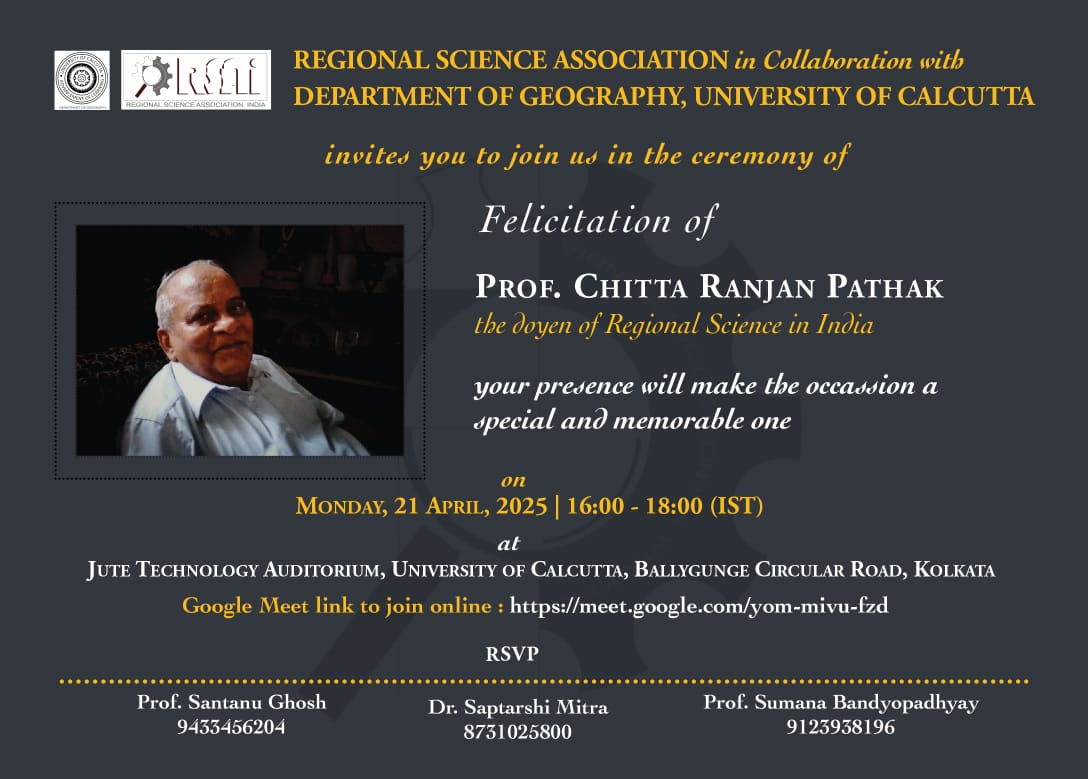
Venue: Jute Technology Auditorium, University of Calcutta, Balluygunge Circular Road, KolkataDate: 21 April 2025Time: 16:00-18:00 (IST)
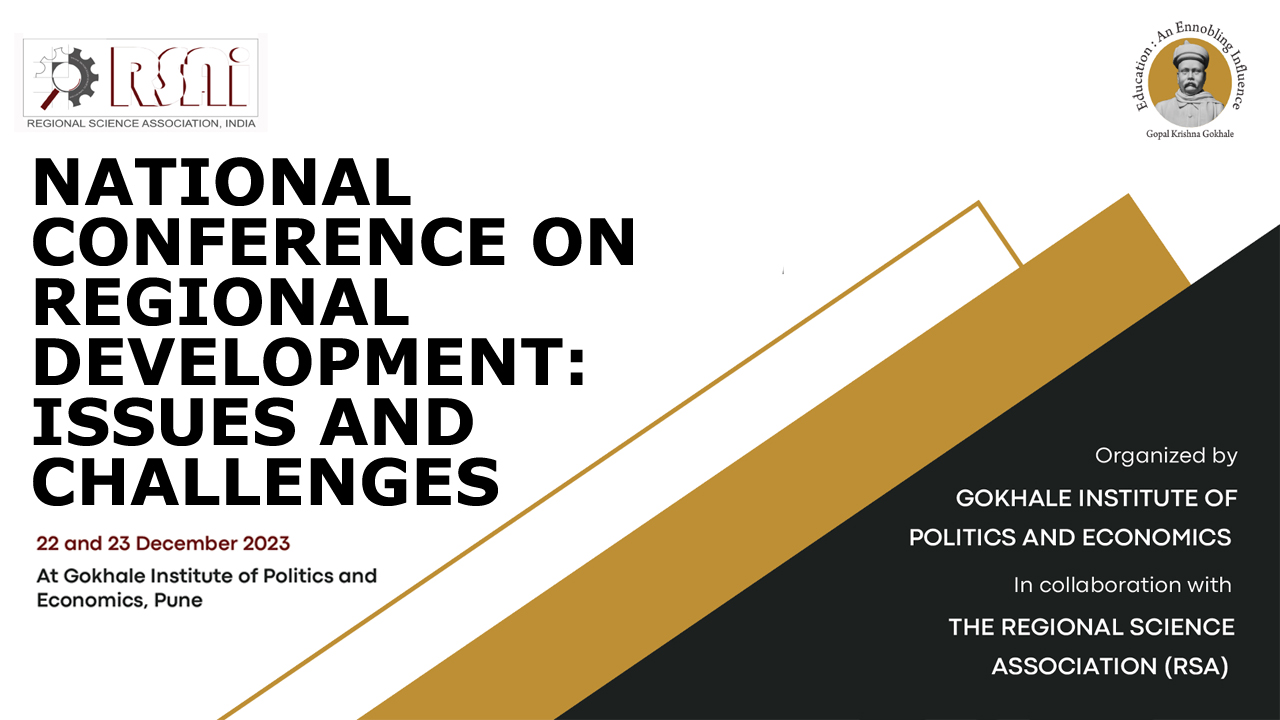
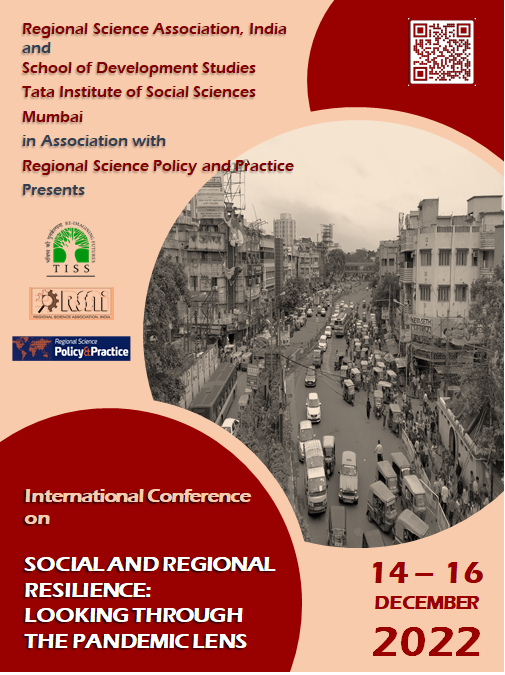
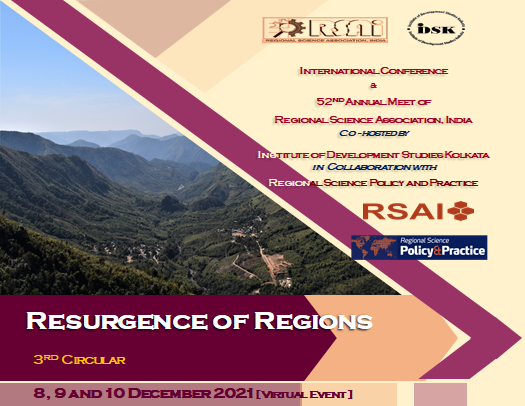
International Conference & 52nd Annual Meet of
Regional Science Association, India
Co-hosted by
Institute of Development Studies, Kolkata
in Collaboration with
Regional Science Policy and Practice
RSAI NYT Workshop: 08th December 2021
Main Conference: 09th and 10th December 2021
We invite a concise and factual abstract of 300 words highlighting the research
problem, data, methods, and major findings. References should be commonly
avoided in the abstract. Kindly follow the following format for preparing the
abstract. Submit abstract at rsai.conference@gmail.com
Abstract Submission (Extended): 30th November 2021
Registration Deadline: 4th December 2021
Delegates interested in submitting their full papers are requested to do so by January 30, 2022.
To register for the conference kindly fill-up the following form: https://forms.gle/DZs66yTYvDKyZYTT8
Please pay the registration fees before filling up the registration form and uploading the payment receipt.
Online Participants:
Members of RSA India: INR 800/-
Non-members: INR 1000/-
Registration Fees to be Sent by Bank Transfer Only
Account Details:
Name of Bank: State Bank of India
Branch: Bikash Bhavan, Salt Lake
Account Name: Regional Science Association India
Account No: 37364653656
IFSC : SBIN0007816
Swift Code: SBININBB
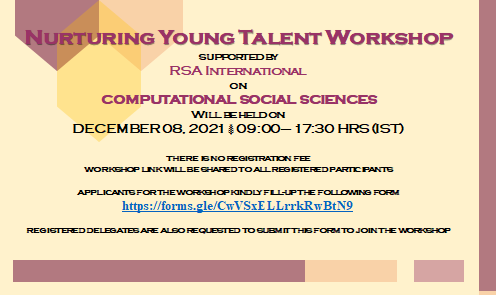
supported by
on
will be held on DECEMBER 08, 2021 @ 9.30 -9.45 HRS (IST)
registered delegates are also requested to submit this form to join the workshop
Submit the form: https://forms.gle/CwVSxELLrrkRwBtN9
https://us02web.zoom.us/j/85649023689
Meeting ID: 856 4902 3689Download Now
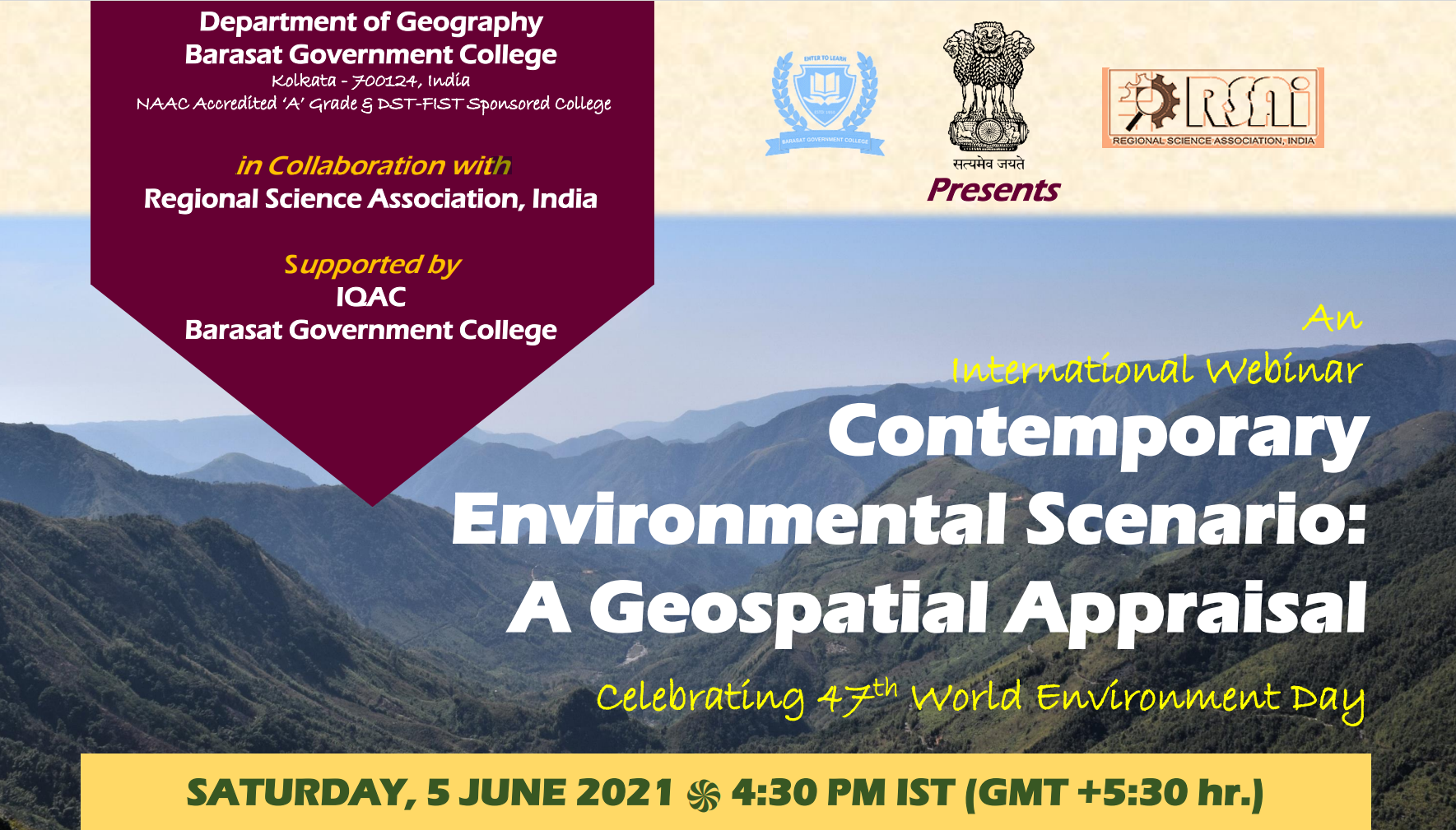
SATURDAY, 5 JUNE 2021 at 4:30 PM IST (GMT +5:30 hr.)
Through Google Meet and Live Streaming
For registration click here: https://forms.gle/ucehxfA7RQSnaVU98 
The Programme link will be communicated to all registered participants over e-mail. Certificate of Participation will be provided to all participants (within 1 month) who will submit the feedback form within midnight of the same day. Feedback links will be provided in the Google Meet and YouTube chatbox before the completion of the event.
For any query contact: bgc.geo.event@gmail.com
Key Speakers
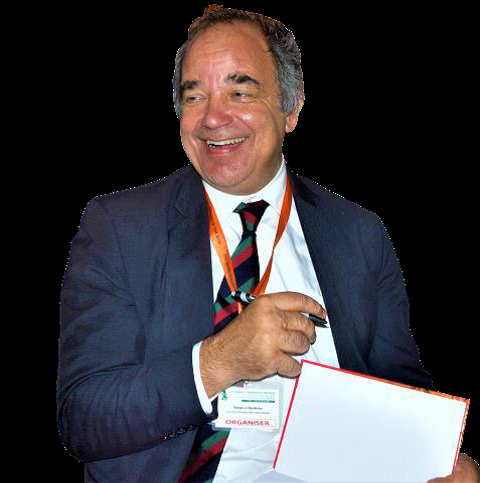 Prof. Tomaz Ponce Dentinho
Prof. Tomaz Ponce Dentinho
Professor Centre of Applied Economic Studies of the Atlantic Department of Economics and Business
University of Azores, Portugal.
 Dr. Debjani Ghatak
Dr. Debjani Ghatak
Visiting Assistant Professor Department of Geography College of Geosciences Texas A&M University, USA.
The Collaborating Institutes:
Barasat Government College [BGC]: www.bgc.org.in
Regional Science Association, India [RSAi]: www.rsai.org.in
Download the PDF below;
Download Now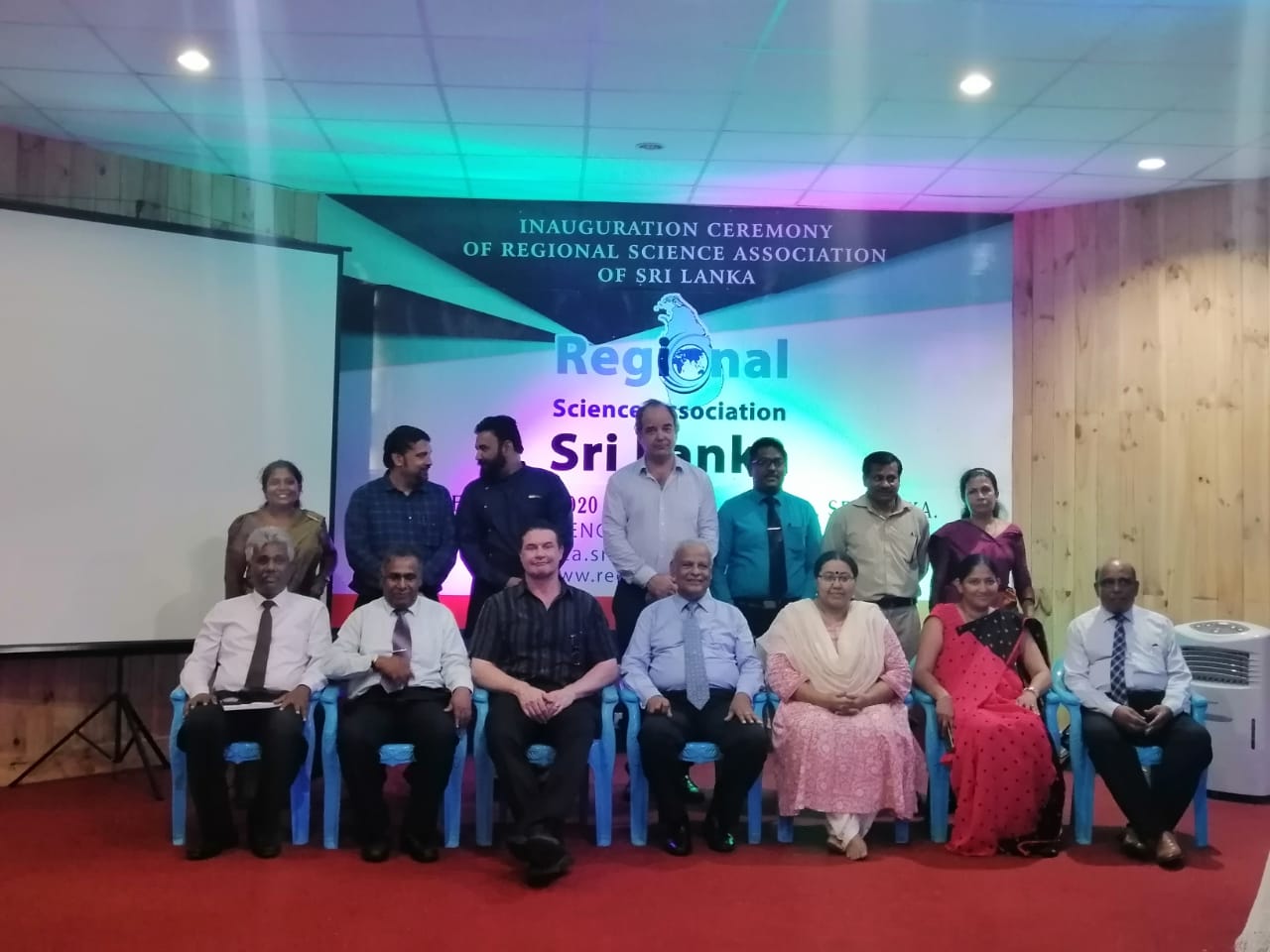
The Sri Lanka Section inaugurated today. To know more Check their website.
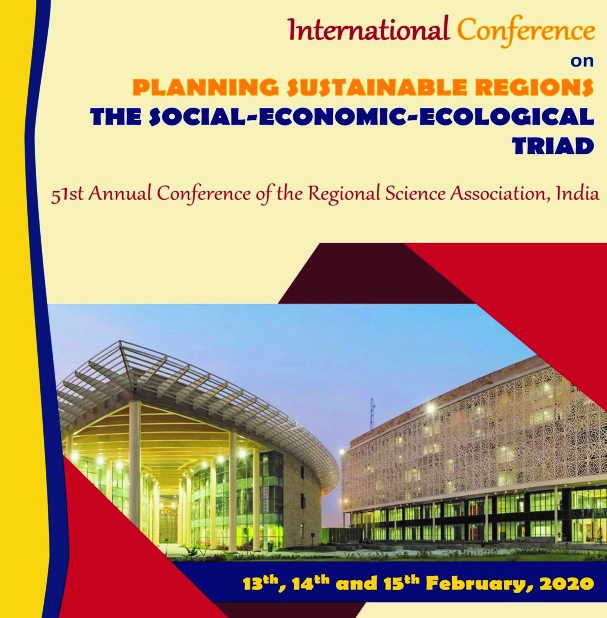
The 51st International Conference of the Regional Science Association will be hosted by Amity Institute of Environmental Sciences and Amity Institute of Social Sciences of Amity University, Kolkata on 13th, 14th and 15th February, 2020. The conference is open to regional scientists, practitioners and researchers in the field of regional science. It will include Keynote Lectures, Plenary and Scientific Sessions.
The Background
In the broadest sense, any social science analysis that has a spatial dimension is embraced by regional scientists. As a subject, it was initiated in 1940’s by economists who were dissatisfied with the level of regional economic analysis, led by Prof. Walter Isard and his supporters to promote the "objective" and "scientific" analysis of settlement, industrial location, and urban development. Isard targeted key universities and campaigned tirelessly. 2019 was his 100th birth anniversary and we hope to continue celebrating his works in the 51st anniversary of the Regional Science Association.
The Regional Science Association in India (RSAi) was born in 1964, when Prof. Isard visited the IIT Kharagpur in India and has been carried forward by Prof. Chitta Ranjan Pathak who has led its development through the last 50 years. Its biannual journal, Indian Journal of Regional Science has been published since 1967. Over the last 50 years, RSAi Annual conferences (both national and international) have been hosted by eminent institutions across India including IIT's, IIM's, Mumbai, Baroda, Nirma, Calcutta, Tripura Universities, School of Planning and Architecture to name a few. As a befitting Golden Jubilee celebration, RSA India was selected to host the 12th World Congress of Regional Science Association International, The first World Congress was held at Harvard University in 1980 and its 12th at Goa, India.
All the applicants are requested to fill up the registration form using the link:
https://docs.google.com/forms/d/e/1FAIpQLSdXOYWdC7Ei2W9mGwlNFeSsUYst2iE_GuDbAPBK8zhCf7qcew/viewform
To know more download the brochure below.
Download Now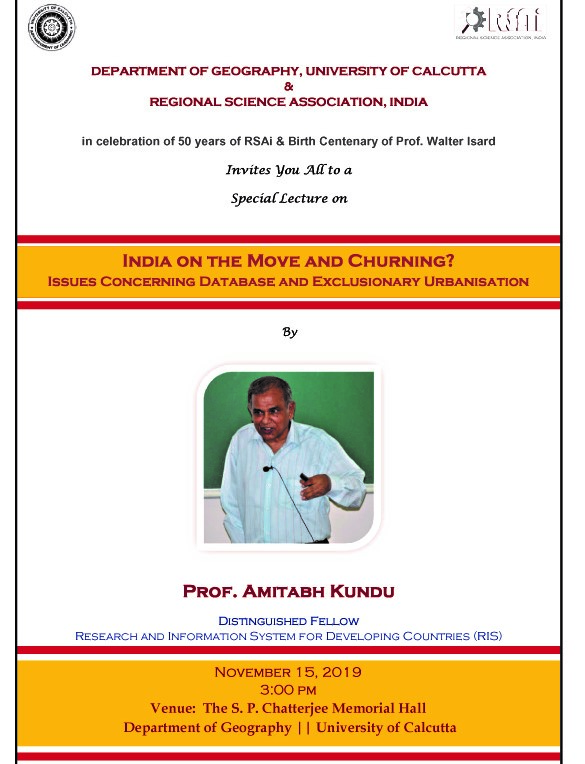
The Department of Geography, University of Calcutta, Kolkata and Regional Science Association, India in celebration of 50 years of RSAi & Birth Centenary of Prof. Walter Isard; invite you all to a Special Lecture on India on the Move and Churning? Issues Concerning Database and Exclusionary Urbanisation by Prof. Amitabh Kundu, Distinguished Fellow Research and Information System (RIS) for Developing Countries.
Venue: The S. P. Chatterjee Memorial Hall; Department of Geography, University of Calcutta; 35, B. C. Road, Kolkata 700 019
Date & Time: November 15, 2019 at 03:00 pm.
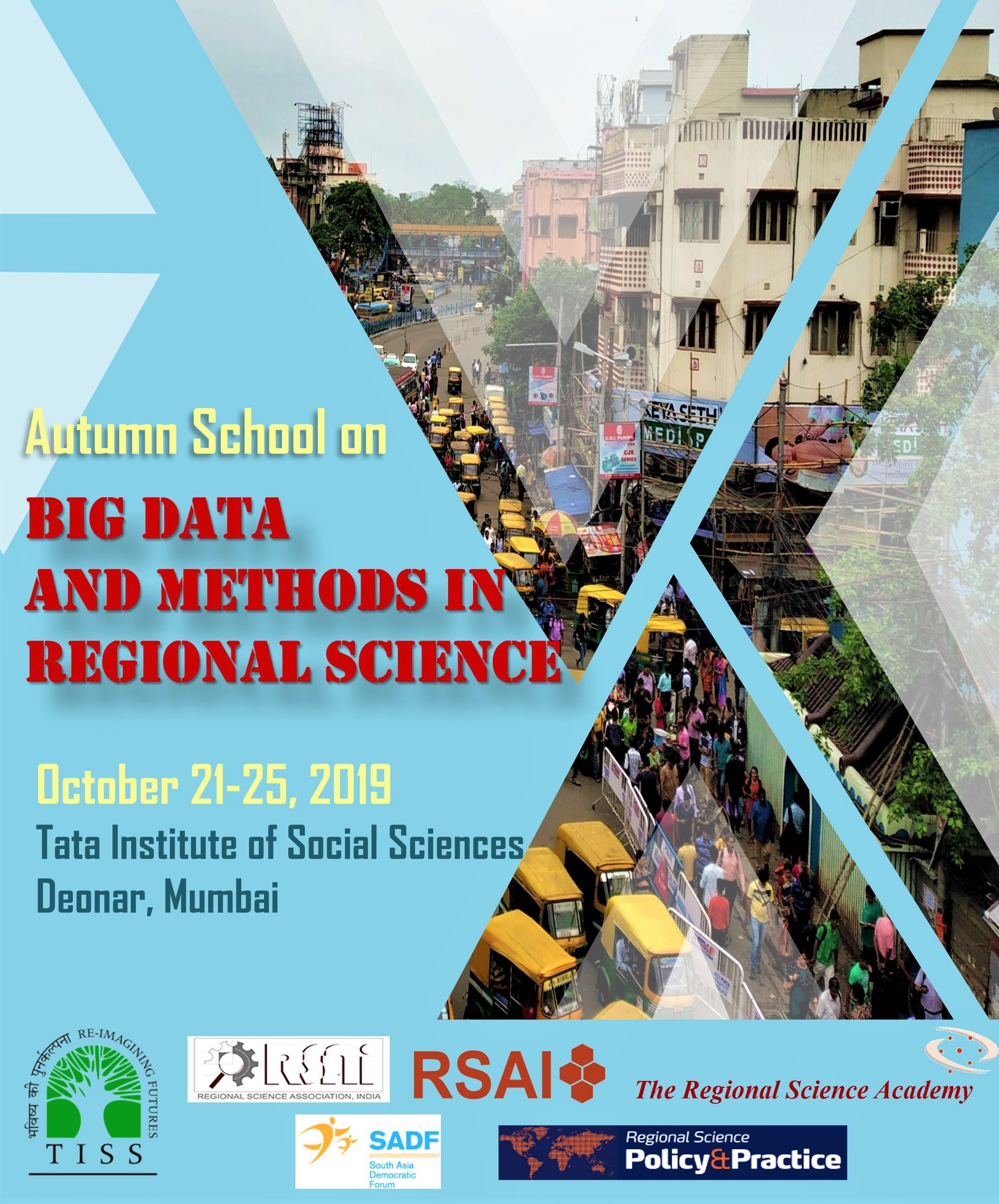
Big Data and Methods in Regional Science :-
The Regional Science Association of India in collaboration with Tata Institute of Social Sciences, supported by the Nurturing Young Talent Programme of the Regional Science Association International is going to organise the Autumn School during 21-25 October, 2019.
Objectives of the Autumn School :-
To provide a platform for enhancing teaching-learning and research experiences of participants with a view to establishing and expanding the knowledge base on a range of contemporary methods in spatial analysis that are used in addressing issues in regional science.
Concept Note :-
In celebration of the Golden Jubilee of Regional Science Association, India, we are privileged to hold our first Autumn School on Big Data and Methods in Regional Science in commemoration of the birth centenary of Professor Walter Isard.
Researchers in regional science use different methods of spatial and social analysis. There is a constant need to re-think and re-imagine methods and models, to evaluate the state-of-the-art technologies, software and models available to enhance the research output both in terms of quality and dissemination. At this juncture, one of the prime reasons for this re-think is the onslaught of data upon researchers. According to an article in Forbes magazine, by 2020, some 2 megabytes of information will be generated every second per person. Making sense of Big Data is the current challenge and researchers must constantly review methods of analysis. The workshop will incorporate technical sessions wherein experts will share their experiences of use and applicability of contemporary methods in spatial analysis of big data, debate and discuss with participants and also facilitate the hands-on use of software in case of data analytics, spatial statistical modelling, GIS and Remote Sensing. The experts will expect participants to defend their research papers on the basis of comments/suggestions that will pre-date the workshop. The aim is to bring together resource persons and instructors from different sub-themes of Regional Science and also to have special sessions dedicated to planning and policy matters, with special reference to urban planning. We aim to create a melting pot of academicians and policy makers to create a new agenda for Regional Science in the coming years. The dissemination of research in regional science, handling big data and data analytics with renewed synergies are expected to be the clear outcomes of the proposed workshop.
Participants :-
Applicants are expected to have clear research goals pertaining to the theme and a good understanding of spatial science (geography, economics, planning and allied subjects). Applicants should have completed Masters and enrolled / applied for Research positions. Early career researchers may also apply. Basic statistics, soft-computing skills and GIS knowledge is necessary. Selections will be based on the research proposals being evaluated by a Review Committee comprising members of International and India section.
Application Process :-
The Autumn School is open to early career researchers (pursuing Ph.D., Post Doctoral Research) and faculty members. Step I:
Applicants must submit (in PDF) to rsaitiss.autumnschool@gmail.com along with the following documents:
(a) A covering letter expressing the relevance of the workshop to his/her academic career (b) A research concept note (max 2-3 pages) will be the basis of selection. It must contain (i) relevance and discussion of the problem including its applicability (ii) clear research questions (iii) literature review (iv) analytical framework and (v) expected outcomes. (c) Brief current CV
Step II:
On being selected, full papers must be submitted in order to be enrolled for the workshop
(a) Each paper will be allocated to a subject expert who will provide insights and suggestions on the paper well ahead and will also act as discussant for sharpening the research skills adopted in the study. (b) After the workshop, select papers will be published in a forthcoming volume of the journal Regional Science: Policy and Practice (The RSAI journal published by John Wiley &Sons Inc., (based on selection by the editorial board and reviewers).
All the applicants are requested to fill up the registration form using the link: https://docs.google.com/forms/d/e/1FAIpQLSe99P8mqFTHJrx3vS719IKN3KSDVPGKQNXVDVGdehHV sZx-Ow/viewform
Special Session:-
A Special Session “In the footsteps of Professor Walter Isard” is proposed to be organized by the Regional Science Academy (TRSA) in memory of Prof. Isard (2019 being his Birth Centenary).
Important Dates:-
Preliminary application (Step I) extended deadline: August 10, 2019
Notification of selection: August 20, 2019
Full paper submission within: September 20, 2019
Registration within: September 20, 2019
Registration Fees:-
Members of RSA India and RSAI: INR 4000
Non-members (SAARC): INR 5000
Non-member Non-SAARC countries: 100 €
Registration fees will cover study material, lunch and tea, field visits.
Bank Details for Registration:-
Name of the Bank: State Bank of India
Account No. : 37364653656 (Current Account)
Address: Bikash Bhavan, Salt Lake
Beneficiary: Regional Science Association, India
IFSC: SBIN0007816
Swift Code: SBININBB334
Currency: INR
The Registration fees should be paid by bank transfer only, followed by an email to rsaitiss.autumnschool@gmail.com enclosing the receipt (proof of payment) for the record. The registration process should be completed on or before September 20, 2019 (Extended).
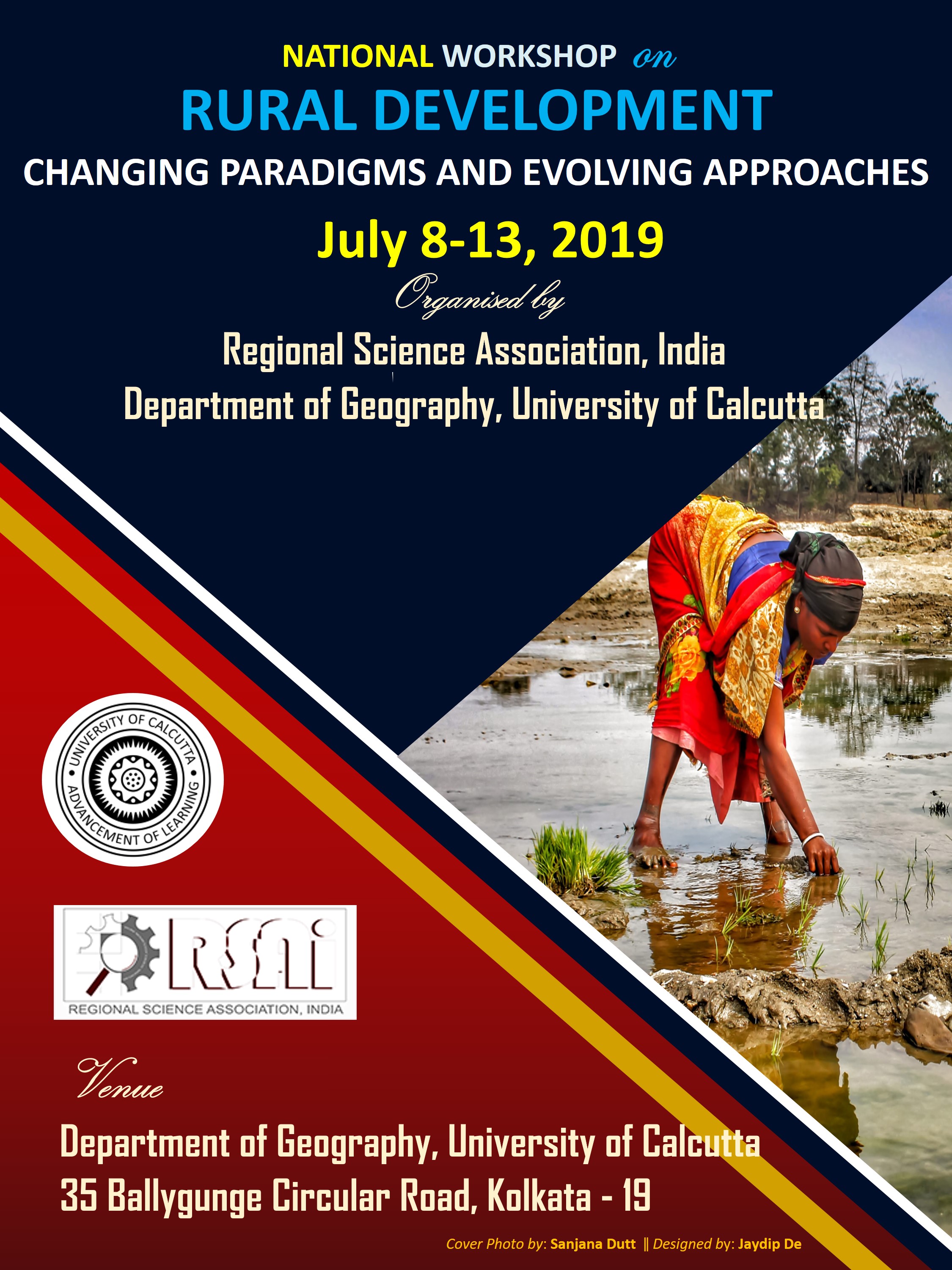
The Regional Science Association of India in collaboration with the Department of Geography, University of Calcutta International had organise the National Workshop during 8-13 July, 2019. The basic objective is to create a forum for debating key issues of rural development in India at the present juncture. The concerns of the rural sector relate to impacts of neoliberal growth, outflow of resources both natural and human, rapid degeneration and pollution of the environment and persistent issues related to implementation of adhoc schemes and programmes over the years. The benefit-cost ratio is alarming, while poverty and inequality still remains - what then, are the new approaches and ways to analyse the present situation and evaluate the ways and means of confronting the contentious issues in rural development?
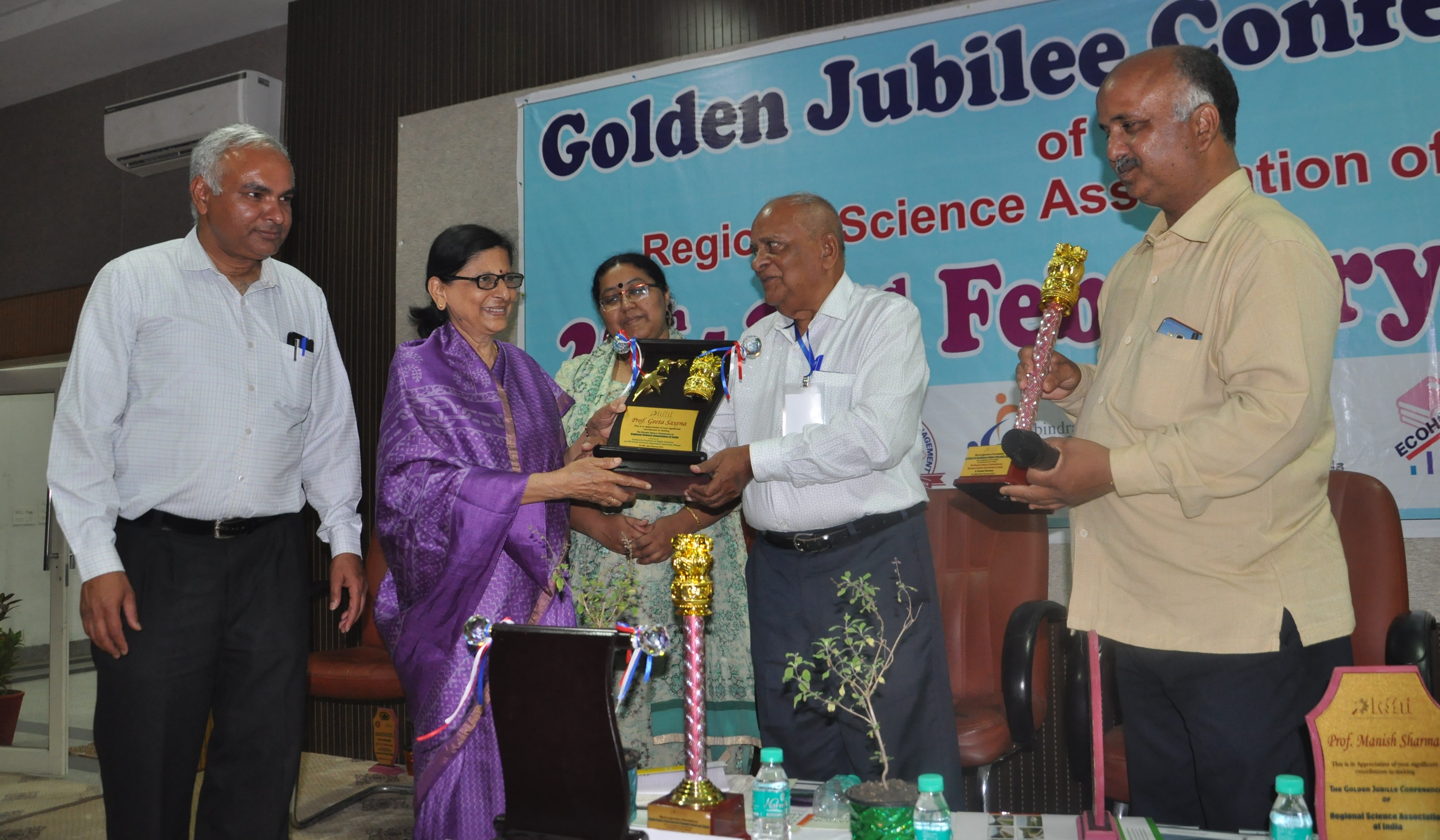
The Golden Jubilee conference of Regional Science Association of India was held in collaboration with Excellence in Higher Education(IEHE), Bhopal and Madhya Pradesh Private University Regulatory Commission (MPPURC), Bhopal, on 20-22 February 2019.
United Nation publishes Global Sustainable Development Report (GSDR) which aims at the High Level Political Forum. Science-policy interfaces refer to the many ways in which scientists, policy-makers and other stakeholders link up to communicate, exchange ideas and jointly develop knowledge to enrich policy and decision-making processes and research (Young, J.C., et al.). The 2015 GSDR underlined the importance of utilizing these linkages to identify emerging issues across the whole spectrum of sustainable development, including its social and economic dimensions (United Nation). This whole spectrum of sustainable development comprises of issues such as social and environmental paradigm of sustainability, expansion of urbanized regions, changing composition of informal sector of economy and many others.
The focal theme was on Emerging Regional Issues and Sustainability , with a view to provide new light on the complexity and interconnectivity of emerging issues, in the process strengthening the science policy interface and possibly leading to more timely responses to emerging threats or the exploitation of new opportunities. The regular scanning and multidisciplinary analyses of emerging issues from different levels and perspectives is important and should be maintained as a necessary and useful early warning system for the science policy interface. There is scope for enhanced dialogue between scientists, social scientist and policy-makers in considering both the processes by which emerging issues as well as the substantive character of issues that – out of the plethora ofeme rging issues (UNGSDR).
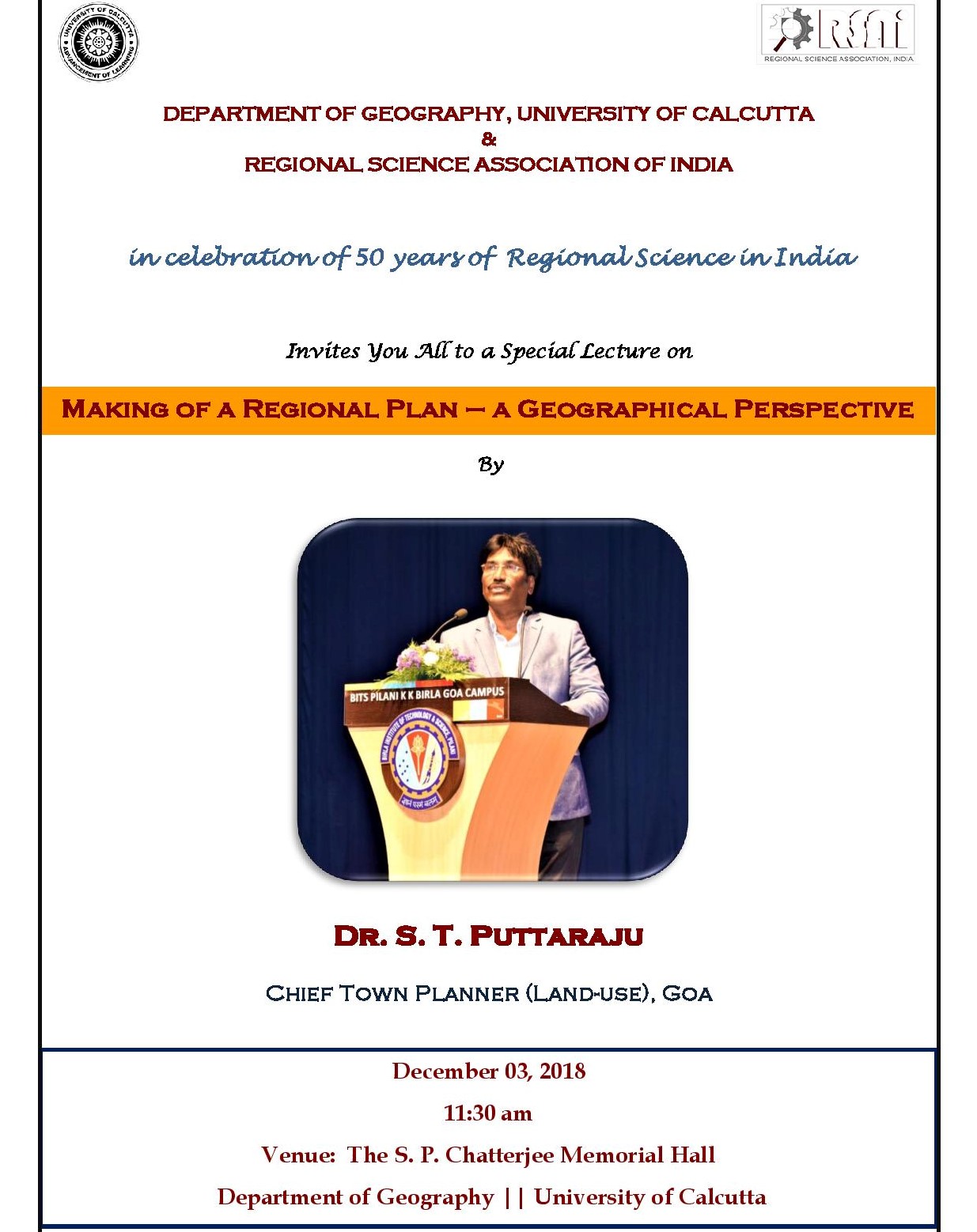
The Department of Geography, University of Calcutta, Kolkata and Regional Science Association, India in celebration of 50 years of RSAi; invite you all to a Special Lecture on Making of a Regional Plan- A Geographical Prespective by Dr. S.T . Pattaraju, Chief Township Planner(Land-Use), Goa.
Venue: The S. P. Chatterjee Memorial Hall; Department of Geography, University of Calcutta; 35, B. C. Road, Kolkata 700 019
Date & Time: December 03, 2018 at 03:00 pm.
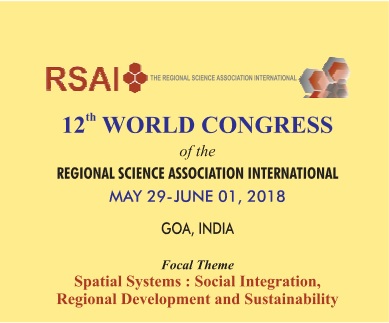
The Regional Science Association International (RSAI) and the Regional Science Association of India (RSAi) had invited regional scientists, economists, economic geographers, urban planners, policy makers, and researchers of related disciplines to participate in the 12th World Congress of the Regional Science Association International, with the main theme "Spatial Systems: Social Integration, Regional Development and Sustainability". The Regional Science Association of India had hosted the World Congress and the 49th Annual Conference of the RSAi in Goa, India, on May 29 - June 01, 2018.
The conference was open to regional scientists, practitioners and researchers in the field of regional science. The Congress includes Keynote Lectures, Scientific Sessions, Poster Sessions, Workshops and Themed Sessions. Field trip was organized in and around Goa. The theme has been chosen to focus upon the development needs of regions as spatial entities, which is the subject matter of spatial science. The conference had encouraged the environment for researchers across the globe, to interact and learn from one another, and to create a network that will be attractive and inspiring for young students and scholars. The intention was to strengthen the community of regional scientists and to achieve a better understanding of our future needs.
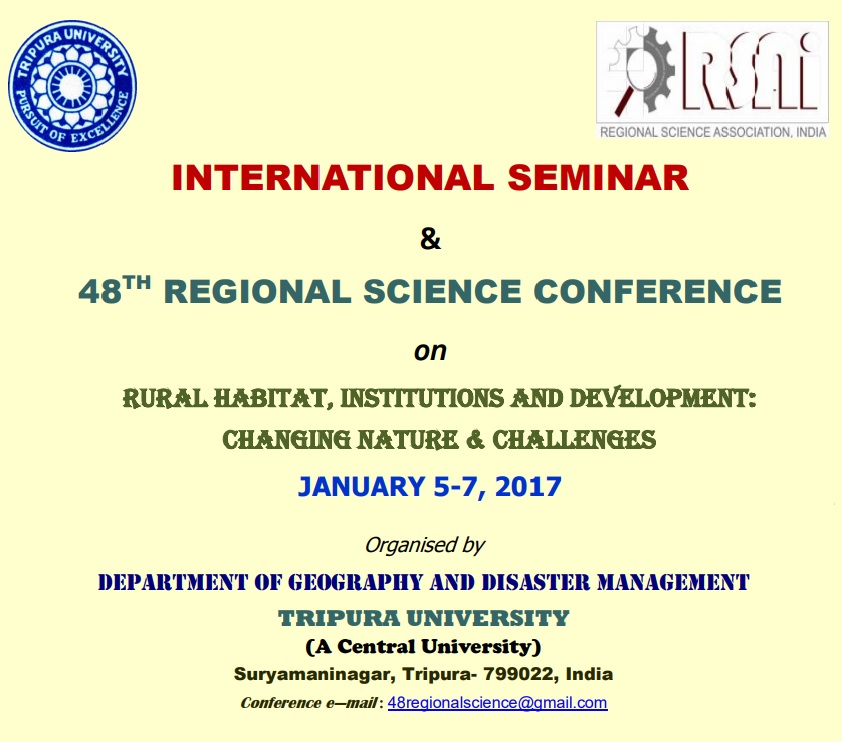
The Department of Geography and Disaster Management, University of Tripura, Agartala and the Regional Science Association, India hosted the International Conference of the 48th Regional Science Association, India.
The theme of the conference was Rural Habitat, Institutions and Development: Changing Nature & Challenges, to provide a platform to address, share and debate on the issues concerning the rural world.The approach was to uplift rural habitat varied in response to selection of time, space, economic ability and socio-cultural stages. Till date, there is absence of universally agreed outlook for rural development, which encompasses the development of agriculture and allied activities, village and cottage industries and crafts, socio-economic infrastructure, community services and institutions aimed at improving the people’s dwelling in rural areas. The United Nations postulated that the rural development is a process of change, by which the efforts of the people themselves are united which enable them to contribute fully to national programme.The growth and progress of a nation can be evaluated on its achievements of rural development policies and programmes.
Venue:Department of Geography and Disaster Management, Tripura University Campus, Suryamaninagar, Tripura, India
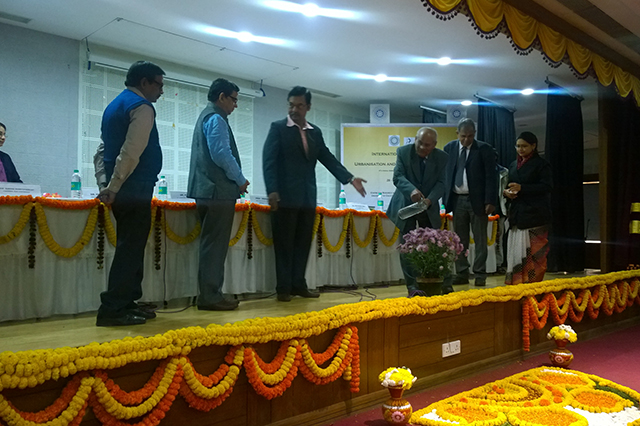
The Department of Geography and the Regional Science Association of India hosted the International Conference of the 47thRegional Science Association, India. It was also the Platinum Jubilee of the Department of Geography, University of Calcutta.
The theme of the conference was Urbanisation and Regional Sustainability ,with a focus upon the ongoing debates in contemporary crisises of development concentrating upon the urban economy. While the crisis adapts varied dimensions, the emphasis was to bring out the major issues in the current trends of growth that concern researchers in the field of regional science. The concerns on green growth and de-growth have led to the paradigm shift from traditional growth-development approaches and the need for understanding the political economy that overshadowed purely economic or social concerns. The geographers are seeking to crystallise their subject matter and question the very notion of “what constitutes geography?” as the interdisciplinary horizons widen. The intention was to bring such debates to the table and have fruitful discussions that help to identify boundaries and opine on the present issues as social scientists and spatial scientists. Venue:The CRNN (technology campus), University of Calcutta, Acharya Prafulla Ray ShikshaPrangan JD 2, Salt Lake, Kolkata- 700 098